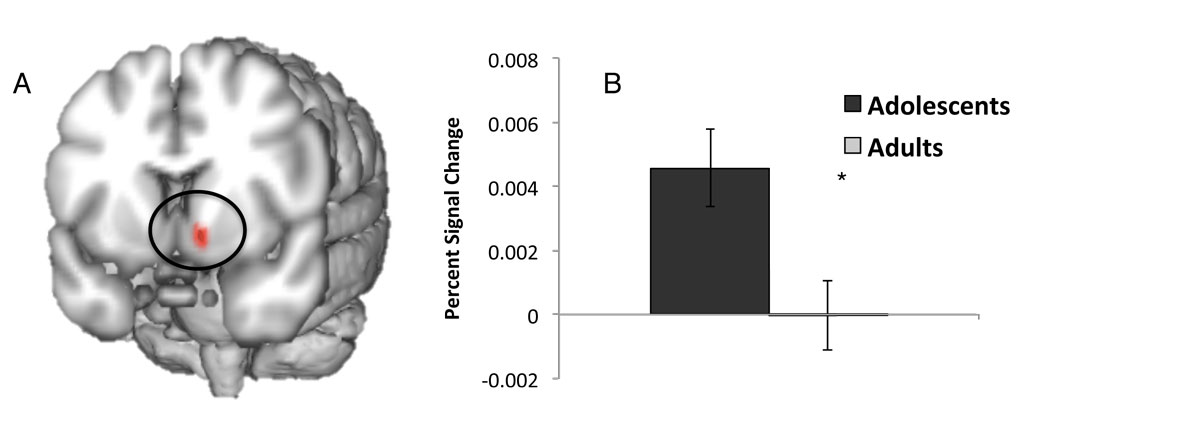Teen Brains Really Are Wired to Seek Rewards

Teenagers often do things if the payoff is great, and the reason may come down to how their brains respond to rewards, a new study suggests.
When teens receive money, or anticipate receiving it, their brains' pleasure center lights up more than it does in adults. The reason is not that teenagers value money more than adults, but more likely because teenage brains haven't finished maturing, researchers say.
"The current study replicates our previous research that the adolescent brain is more responsive and excitable to rewards compared to adults and to younger children," said
Galván, a neuroscientist at the University of California, Los Angeles, leader of the study detailed online today (Jan. 13) in the journal Proceedings of the National Academy of Sciences. [10 Facts Every Parent Should Know About Their Teen's Brain]
A significant amount of brain development happens during the teenage years. Studies have shown that when teenagers receive or expect to receive money, it produces strong activity in a brain region called the ventral striatum, the brain's reward center. One explanation is that teenage brains are less mature than adult brains. But another possibility is that teenagers value money more than adults because the teens typically have less of it.
To determine which of these explanations is right, Galván and her colleagues scanned the brains of 19 adults (age 25 to 30) and 22 teenagers (age 13 to 17) using functional magnetic resonance imaging, while the participants played a gambling game. In each trial, participants had to decide whether to accept or reject a bet with a 50-50 chance of winning or losing various amounts of money.
In the brain scans, the ventral striatum lit up more in the teens' brains than in the adults' brains, even on trials in which both groups accepted the same bets — suggesting the two groups expected the same payoff. The teenagers also made more risky bets, for greater rewards, than the adults did.
Sign up for the Live Science daily newsletter now
Get the world’s most fascinating discoveries delivered straight to your inbox.

The scientists concluded that the brain circuits for responding to rewards are less mature in teens, even though adults value the reward similarly.
"These findings add to a growing body of research showing that how the developing brain responds to rewards is directly related to the choices they make, including risky choices and pleasure-seeking behavior," Galván told LiveScience.
Unrelated research has found that risky teen behaviors, such as experimenting with drugs or having unsafe sex, are driven by an overactive mesolimbic dopamine system. Dopamine is the bread-and-butter of the brain's pleasure system, so greater dopamine activity could explain the pleasure-seeking behavior of teens.
Follow Tanya Lewis on Twitter and Google+. Follow us @livescience, Facebook & Google+. Original article on LiveScience.










